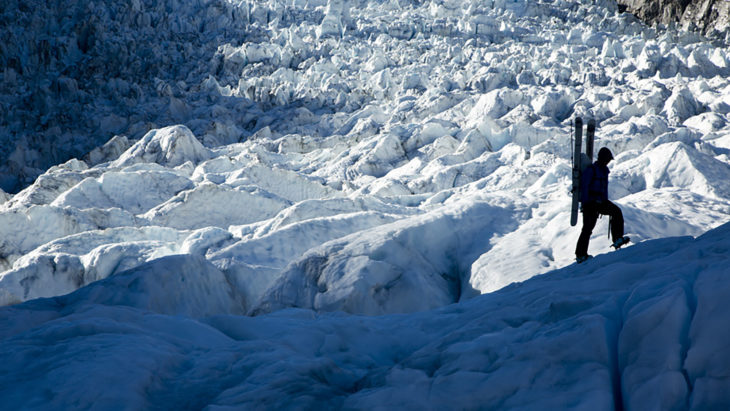An op-ed gives members of the general public the opportunity to make their voices heard within the broader community through a well-defended piece of new opinion writing submitted to a reputable print or digital news publication. Unlike Letters to the Editor which are typically short responses to previously published articles in a newspaper, magazine or digital title, op-eds are longer and offer complete freedom for the writer to express their opinion on any topic. This blank slate makes limited Op-ed placements incredibly competitive. Only the absolute best articles make it to print. For those passionate about the planet and pro-climate policy though, this is your megaphone. Here are a few key tips that will help use it.
1. KNOW YOUR OPINION MATTERS
Op-eds are intensely followed by everyday readers, community leaders, and government officials. Wide open to any topic but carefully vetted by a publication’s editorial board, published Op-eds hold authority that can’t be replicated in 140 characters. “There is something about having them in print or online. A well structured and well written opinion is more persuasive than an oral argument,” says Representative Don Beyer, the congressman for Virginia’s 8th District. “A given member of the public is far more likely to get the eye of an elected leader through an op-ed than they are to get a meeting. A lot of people I’ve never met have deeply influenced the way I think from their writing.” In short, op-eds are a powerful platform ready for all opinions to join the party.
2. UNDERSTAND YOUR AUDIENCE
Keep the everyday reader in mind when writing an op-ed. Not everyone understands climate change at a PhD level. Arguments should be clear and thoughtful, but also understandable, AND most importantly, engaging to the masses. With all the negativity in the modern news cycle, try to inject some positivity into your piece. “Climate change is a massive issue that can make people feel helpless,” says Lisa Bennett, co-author of the book Ecoliterate with over ten years of experience writing about climate and environmental issues. “Instilling hope is a very important to creating action. People need to believe they can make a difference.”
3. FIND YOUR DEEPEST CONNECTION TO THE ISSUES
Every person on the planet has connection to or experience with climate issues just by nature of living in these times of climate uncertainty. However, go a little deeper to find an angle that gives you the most authority. Ties to a reputable, business, organization or university help, but aren’t necessary. “The great thing about op-ed pages is that it’s the ideas and the writing that matter,” says Chuck Plunkett, Editorial Page Editor at the Denver Post. “Some writers who can’t claim bold name backgrounds are much more interesting to read. The trick is the quality of the piece.” Unless you are submitting to a national news source, direct ties to the community in which you are submitting your op ed are essential. Opinion sections of local publications are for the local community and by the local community.
4. GET TO THE POINT
Come out swinging with clear statements of your opinion and your authority, credibility, or personal experience that supports your opinion. Large papers receive dozens, if not hundreds of submissions each week. Making a unique or compelling thesis within the first few sentences will vastly improve your chances of publication. This is especially important for climate-related op-eds. A unique angle or argument not commonly seen in the media cycle will have a better chance of jumping off the page. “Connecting on a personal level can be effective,” says Bennett. “Think about framing your argument based on your own personal stake in the issue like concern for a business, or future generations, or snowfall, or the changes you’re witnessing in your own environment. Then pivot to actions, solutions, or tools that can help your readers learn more or better understand the issue.”
5. OWN YOUR OPINION
Try not to write an op-ed that supports differing viewpoints or is an analysis of facts. Relentlessly defend to your argument throughout the piece. It’s a good idea to address and immediately rebuke strong rebuttals to your opinion with equally strong evidence in support of your opinion. Consult our climate science and solutions primer if you are in need of strong source material for your positions.
6. EDIT, RE-EDIT, THEN EDIT AGAIN
Just about every word in a well written piece should be in support of your position. Avoid the passive voice, be concise and readable and make sure you’ve thoroughly fact checked your sources. Perfect spelling and grammar are also essential. Lastly, don’t forget that style counts. “The writing needs to be fresh and lively,” says Plunkett. “And it needs to be grounded in reality.”
7. FOLLOW SUBMISSION GUIDELINES PRECISELY
Look in a paper’s opinion section both in print and online for submission guidelines. Sometimes it takes some googling, but just about every paper that accepts op-ed submissions should have the guidelines clearly posted someplace online. Hit established word counts and include any required information like a short bio or headshot when you submit. If you don’t hear back for 7-10 days, a short, polite follow up is acceptable, however editors, especially at larger papers, do not have time to respond to each and every submission. If you don’t hear back after 2-3 weeks, you can assume the op-ed will not run.
8. BE READY TO WORK
Getting an op-ed published isn’t a gimme especially in national publications. Your writing will go toe-to-toe with dozens of other quality submissions. With limited print space, many great op-eds end up on the cutting room floor. Be prepared to try, fail, then try again with a slightly different angle, better evidence or a crisper argument for your opinion. If you are struggling to get placement in a large publication, consider a smaller, local one. Don’t forget online publications. Op-Ed writing can be an art that takes time to refine. However, op-ed writing has an important role in changing climate policy. “Data shows that a majority of Americans now believe in climate change,” says Bennett. “All we’re missing for better climate policy is the political will. Op-eds can help with that.”
2018 WILL BE A BIG YEAR FOR CLIMATE
POW is ramping up its efforts to inspire, motivate and support the entire outdoor community in the fight to save our climate. Join Us for more tools and information to get involved.


